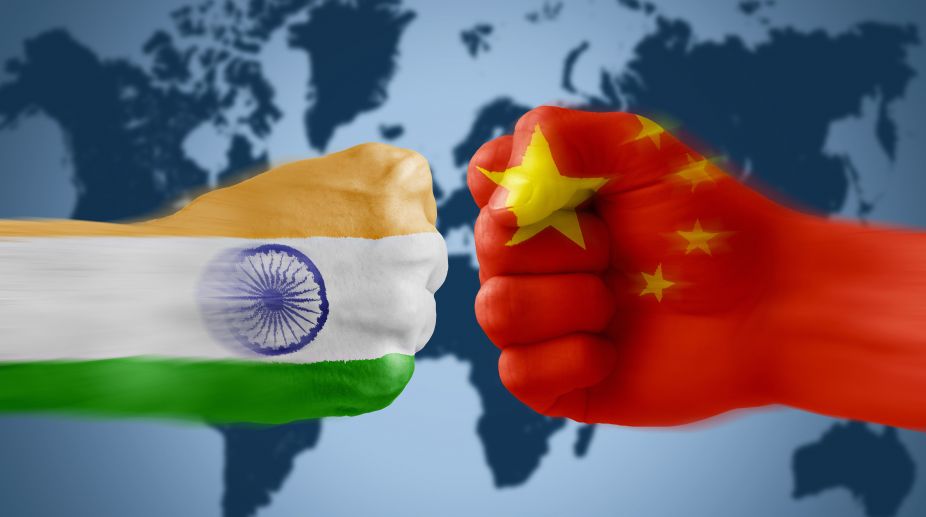With the US under President Trump ploughing a lonely furrow, we have the curious spectacle of India and China coming together on several issues like trade and climate change, while China remains implacably opposed to India’s more vital ambitions ~ membership of the Security Council and the Nuclear Suppliers Group.
China also periodically rakes up border issues, deliberately slighting India in the bargain. With China’s tacit support, Pakistani terrorists keep the Kashmir cauldron boiling. On top of it, India and China have an ongoing border dispute, a dispute over the contours of the Indo-Pak border; a dispute about sharing of river waters but still India and China are each other’s largest trade partners.
Advertisement
Since Independence, two great powers (the USA and China) and a contentious neighbour (Pakistan) have deeply influenced our foreign policy. Till recently, the USA played the role of our elder brother.
China was the typical bully, mocking us and kicking us on the shin when no one was looking. Pakistan was the estranged cousin, with a great familial similarity and an even greater familial enmity.
Russia hovered in the background, a lender of the last resort, whom we turned to when no one else supported us. This equation changed with the disintegration of the Soviet Union in 1990, which made the world unipolar.
The Chinese saw it as a golden opportunity to replace Russia in the global pecking order. Keeping their ultimate aim under wraps, the Chinese concentrated on building up their economic power which was used to create principalclient relationships with strategically located but impoverished states.
After the 2008 meltdown in the West, the Chinese felt confident enough to openly articulate its hegemonistic ambitions, challenging the existing world order and trying to dominate their smaller neighbours.
Continuing the same trend, the Chinese have been uncharacteristically loquacious in its current border dispute with India. The Chinese press and officials have been commenting daily on the border dispute. The Indian side is also particularly vocal with the defence minister reminding the Chinese that Indians are not the pushovers they were in 1962. Despite this verbosity, the Indian side has no clear idea about what the Chinese are trying to accomplish.
Perhaps, brought up on non-alignment, non-violence and Panchsheel, Indians are naive enough not to appreciate that foreign policies of all countries are guided by self-interest alone, and not by consistency or moral principles.
For example, Indians are genuinely flummoxed when some important US official castigates Pakistan for terrorism on Indian soil, but changes his tune when he visits Pakistan. We genuinely think that after designating Hafiz Saeed and Salahuddin as international terrorists, the US would catch them by the scruff of their necks and give them their just desserts ~ as they did to Osama bin Laden.
We feel hurt when our closest friends, Nepal and Bangladesh, attend China’s OBOR meeting. Coming to our latest border dispute, one can say that in addition to self-interest, China is motivated by a sense of historical greatness and a desire to establish its supremacy.
To achieve this objective, China has invested heavily in modernising its army and has assiduously built up military infrastructure along the Sino-Indian border. We are in a much weaker position on the border because in addition to nuclear armaments and a large army, China has a number of allweather roads, railway lines and airfields near the SinoIndian border, particularly in the Eastern Sector, while we have very few means of ferrying troops to the border quickly. This can partially explain the deliberate provocations and snubs China hands out to us frequently.
Realistically, we are left with very few choices to end the current dispute. First, we have to stop attacking China through belligerent statements and understand what China is trying to convey through its official statements and state-controlled media. Then we have to talk to China directly, assuaging their concerns and putting across our concerns to them.
This does not mean that we should accept Chinese hegemony. Relations between nations are finely nuanced; we can talk to the Chinese without appearing to have been cowed down. So far, robust trade relations between China and India have ensured that no precipitate action has been taken by either side but the border stalemate has shown us in poor light; our strategic weakness is now manifest before the entire world.
To avoid repetition(s) of this kind of situation we have to provide road, rail and air connectivity to all points at our borders so that we can mobilise troops whenever required.
Simultaneously, modernisation of our armed forces has to be accorded priority. A war-like situation can be avoided only if the enemy sees us as strong.
Second, our border states are in turmoil and Pakistan and China are unashamedly fuelling unrest against the Indian Government in Kashmir and the Northeast. For our own wellbeing, we should keep the residents of Kashmir and the Northeast satisfied even at the cost of concessions. Third, we have to engage efficiently with our neighbours. Many regional projects like the Chabahar Port Project have been hanging fire for decades.
Contrast this with China which is running trains to Europe while we struggle to provide connectivity within India. If we had sufficient foresight, we could have made Pakistan a client state instead of giving China this opportunity. We have the potential to outdo China, only lack of initiative, sloth and bureaucratic inefficiency hold us back.
The writer is a retired Chief Commissioner of Income-Tax











